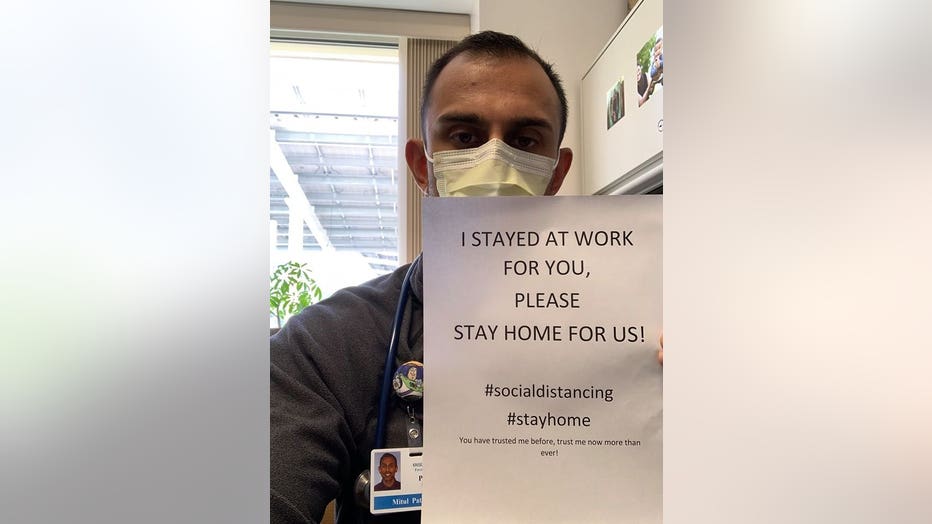Washington hospitals in dire need of protective equipment: 'This is a war'
Washington hospitals in dire need of protective equipment
Washington governor issues 2-week 'stay-at-home' order amid coronavirus outbreak http://via.q13fox.com/Qit2K
SEATTLE-- Hospitals in western Washington are in desperate need of protective gear as more and more patients require care for the coronavirus.
“All of our hospitals are running low on P.P.E. (personal protective equipment)," said the president and CEO of the Washington State Hospital Association Cassie Sauer.
As resources run thin, hospital staffers are forced to be resourceful.
"They are all reusing masks," Sauer said. "They are all sending fewer staff to care for patients, putting patients with COVID together, so you can use the same P.P.E. multiple times. So yes, everyone is running low on P.P.E."
Hospitals want to avoid the tragedy in Italy, where the medical system is overwhelmed.
In Washington, the biggest needs include N-95 masks, surgical masks, eye protection, and disposable gloves and shoe covers.
The federal government says it’s on the way.
“We're doing several things. We're sending out the national strategic stock pile supplies. We've sent over two million masks to California, to New York, to Washington, to the places hardest hit," U.S. Surgeon General Jerome Adams said.
Saur fired back.
“Stop talking about it and start doing it," she said. "Faster. This is a war. We need the manufacturers to manufacture. We need the federal government to let go of its stockpile. We need these materials now.”
Local hospitals are doing everything they can to avoid a disaster. The CHI Franciscan hospital system has set up Mission Control. It's a NASA-style command center tracking coronavirus cases at its network of 11 hospitals, 16 urgent care centers, and 11 COVID-19 triage centers. Doctors and administrators track the progress and decide where to deploy resources in real-time.
As of last week, CHI Franciscan had screened more than 10,000 patients.

Individual doctors are doing their part. This doctor posting a sign saying, “I stayed at work for you, please stay at home for us.”
Woodinville dentist Dr. Rama Oskouian is donating her protective equipment to local hospitals and calling on other dentists to do the same.
“If you think about all of these providers who have supplies. If they can be so kind enough to donate to our hospitals. We are going to run out. Doctors, nurses, they are going to run out of P.P.E. and we’re going to have a disaster," Oskouian said.
Medical leaders are making other difficult decisions. The state health officer is coming up with guidelines on how to decide who should receive treatment and who should be left to die if in fact the health care system gets overwhelmed.

